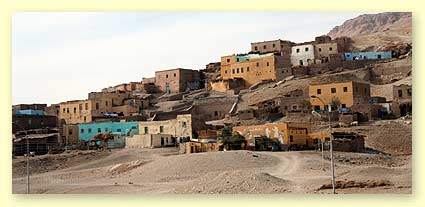There is a storm brewing among the biggest editorialists of Egypt’s press scene. It has been reported that a few days ago, Salama Ahmed Salama, the doyen of reasonable, non-partisan commentators at al-Ahram, had a violent clash with the chairman of the board of the august newspaper, Mursi Atallah. Atallah wanted Salama to stop his involvement in Shorouq al-Gedid, the new independent daily that, by going for a highbrow audience and staid style, is trying to place itself in competition to the flagship state-owned daily. Salama is said to have resigned immediately and walked out, depriving al-Ahram of one of its most respected icons whom for a long time ran the central desk (correct me if I’m wrong) that is so central to the way Egyptian newspapers tend to be run. (Although lately, due to illness, Salama had been a lot less present.)
Now Atallah has apparently issued a directive to some other frequent op-ed writers who are part of the al-Ahram stable asking them to stop freelance contributions to other papers. But these – for instance the good people at the al-Ahram Center for Strategic and Political Studies like Abdel Moneim Said Ali, Amr Chobaki and Dia Rachwan (who each come from quite different political trends, respectively NDP-liberal, left-liberal and Nasserist) – are rather pissed off about this. It would be rather odd, say for a British or American editor, to see the names of his employees appear in other papers. For instance Abdel Moneim Said writes for al-Ahram, Masri al-Youm and Nahdet Misr. But this practice is widespread in Egypt, offering these public intellectuals a platform across different media and of course diversified income. Considering al-Ahram still clings to a salary model that is highly reliant on bonuses (which themselves vary according to the chairman’s whim), I can’t say I blame them. This particular trio appeared on TV last night (on ‘ashira masa’an, Dream 2) to protest the new directive from Atallah, which comes in the context of a long-running feud between the chairman and al-Ahram editor Osama Saraya.
More generally, this kerfuffle involving some “big names” in Egyptian political commentary points to a wider problem in the industry: bizarre salary scales, and for ordinary journalists the fact that it is a poorly paid profession that offers for the most part little prospects of career and social advancement, which in tuns contributes to a tolerance of low-quality journalism and (especially in al-Ahram and state papers) pages filled with repetitive commentary by people just filling in their weekly allocation of column inches.
Several years ago, when Mubarak sacked most of the chairmen and editors (often they were the same person) of the big government publishing houses, it was noted that these would need serious reform to survive in a more market-centered industry. Salama was one of the most important advocates of this reform. That reform still has to come – no one wants to let go of some of al-Ahram 1400 journalists, a major voting bloc for the politically hyperactive Journalists’ Syndicate – but the distortions and wide-ranging freelancing of many of its writers suggests that many are simply taking matters into their own hands. The question will inevitably come: does Egypt really need al-Ahram, al-Akhbar or al-Gomhouriya? Or are these dinosaurs of Nasserism mostly serve today the function of keeping a large staff employed, providing the government with an outlet for its point of view, and perhaps slowing down the expansion of independent media by mopping up a lot of premium advertising income? The problem is, are we even sure that independent media can do better in terms of editorial quality and political independence? Not necessarily, and certainly not unless the everyday reporters are paid a living wage.




